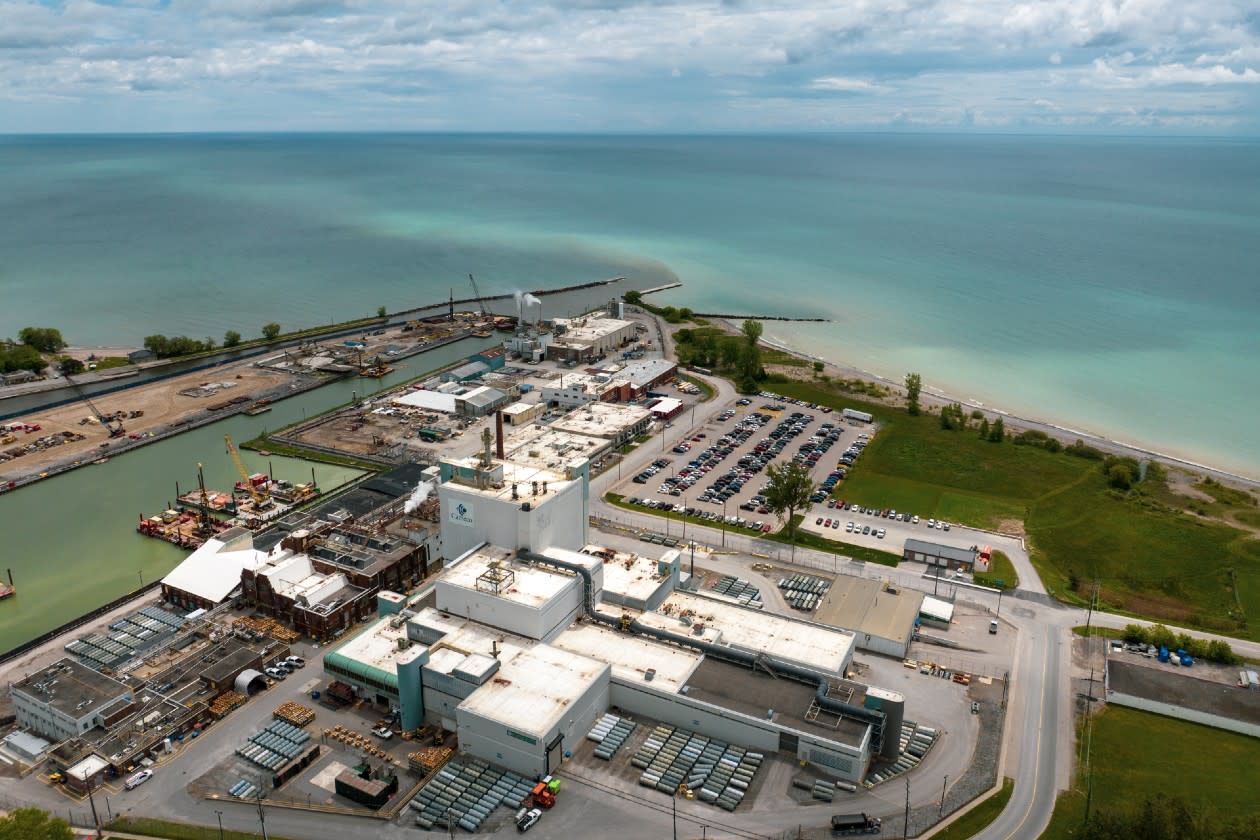Cameco’s third quarter sales fell 15% to $615mn largely due to lower Uranium sales volumes.
Underlying EBITDA fell by just 5% to $310mn, supported by stronger pricing in Uranium and Fuel services.
Free cash flow moved from a small negative position to $63.2mn. Net debt has more than halved since December to $217mn.
As a result of production delays announced in August Cameco’s share of Uranium production for 2025 is expected to be lower than initially hoped. Uranium sales guidance has been narrowed from 31-34mn lb to 32-34mn lb (2024: 33.6mn lb). The outlook for the Westinghouse is unchanged.
Cameco is raising its annual dividend 50% to $0.24 per share reaching this level one year ahead of target.
The shares fell 3.9% in early trading.
*Currency = Canadian Dollars
Our view
Market sentiment towards Cameco was strong heading into third quarter results, following a strategic tie up between the United States government and the company’s 49% owned joint venture, Westinghouse.
Production delays at McArthur River, the world’s largest high-grade uranium mine, tempered optimism on results day. Some of this shortfall being offset elsewhere, so we’re not too concerned, but another harsh Canadian winter could cause further setbacks. Looking ahead, Washington’s $80bn reactor pledge should be the greater focus.
The partnership also puts the prospect of a separate IPO of Westinghouse firmly on the table. There are no guarantees, but the deal sets out a target valuation of at least $30bn, nearly seven times the price paid by Cameco and its JV partner Brookfield in 2023. That’s a tantalising prospect but a lot can happen in that time. For now, our focus is fixed on the impact on Cameco’s financial performance.
Westinghouse already accounts for about a third of Cameco’s profits. If the agreement goes to plan, we should see a significant uplift while providing a long-term boost in demand for Cameco and Westinghouse’s other divisions. However, such an ambitious expansion is not without execution risk.
The supply dynamic looks favourable, with limited sources of new uranium coming on stream at a time when demand is increasing. Cameco has several approved and built mines in less volatile regions ready to fire up. Almost 90% of uranium consumption is in countries with little-to-no primary production and Cameco has controlling ownership of one of the world’s largest high-grade uranium reserves.
The balance sheet is currently strong and with operations ramping back up, cash flows have improved too. That’s paved the way for an improved dividend program, though no shareholder returns are assured.
Cameco is exposed to political risk. We think policymakers will remain on a more nuclear-friendly course, but sentiment could change. There’s also some risk from tariffs, but we think having the US government onside could see future policy align with Cameco’s interests.
Cameco is a well-placed name to capitalise on the ongoing nuclear renaissance. Meanwhile the Washington/Westinghouse partnership could herald a step-change in scale. The market’s recognised the opportunity too, pushing the valuation relative to earnings to over two times the long-term average, meaning there’s additional pressure to deliver an acceleration in growth.
Cameco key facts
All ratios are sourced from LSEG Datastream, based on previous day’s closing values. Please remember yields are variable and not a reliable indicator of future income. Keep in mind key figures shouldn’t be looked at on their own – it’s important to understand the big picture.
This article is original Hargreaves Lansdown content, published by Hargreaves Lansdown. It was correct as at the date of publication, and our views may have changed since then. Unless otherwise stated estimates, including prospective yields, are a consensus of analyst forecasts provided by LSEG. These estimates are not a reliable indicator of future performance. Yields are variable and not guaranteed. Investments rise and fall in value so investors could make a loss.
This article is not advice or a recommendation to buy, sell or hold any investment. No view is given on the present or future value or price of any investment, and investors should form their own view on any proposed investment.


